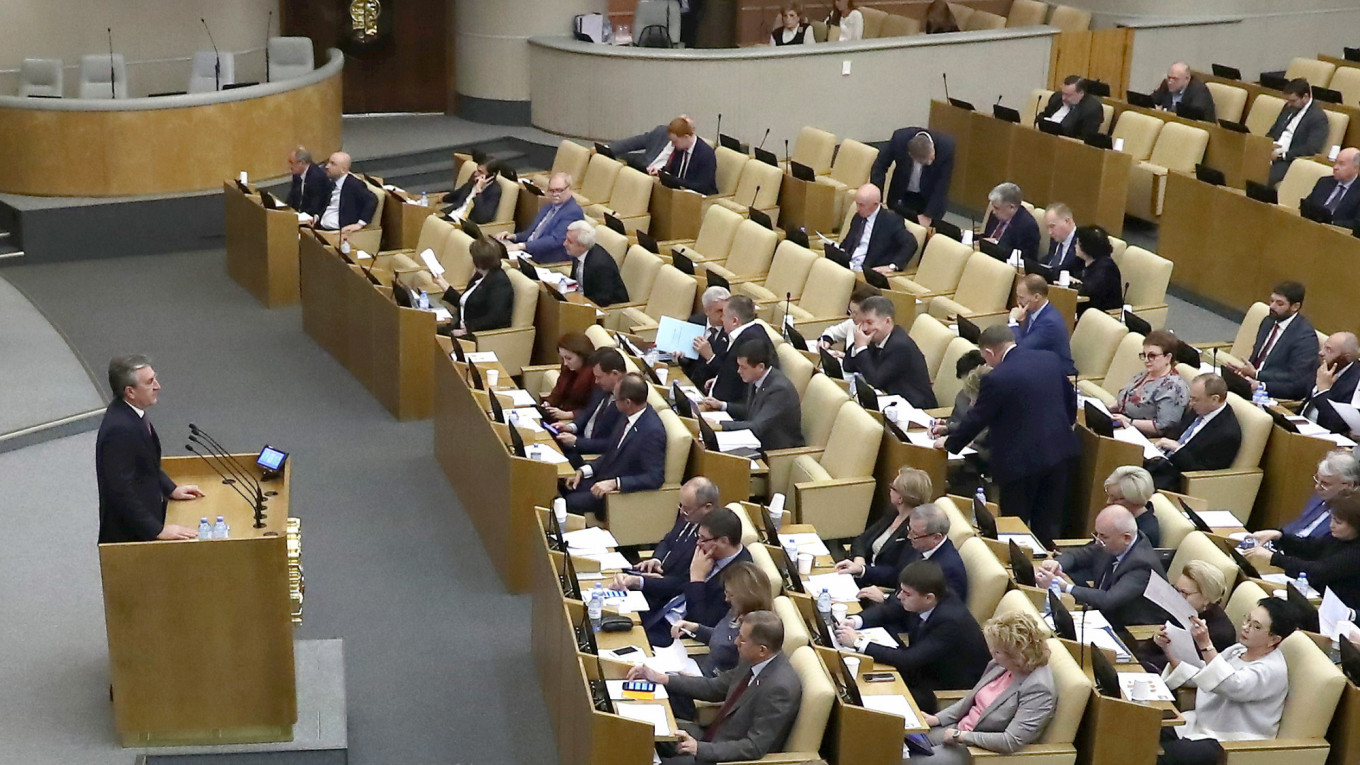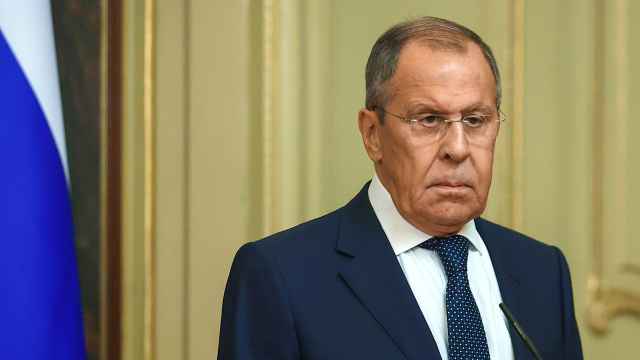Russia's lower house of parliament passed legislation on Thursday that will allow individual journalists to be labeled foreign agents, a move that critics say will tighten curbs on the media.
Russia adopted an initial foreign agent law in 2012 which gave the authorities the power to label non-governmental organizations and human rights groups foreign agents.
The legislation that was approved on Thursday, and which now goes to the upper house and then President Vladimir Putin for approval, extends the legislation to cover individuals.
If Putin signs off on the legislation, all material published by an individual who receives money from abroad will be labeled as having been distributed by a foreign agent. Also, any individual who distributes foreign media could be labeled a foreign agent.
New-York based Human Rights Watch said the draft legislation was a "further step to restrict free and independent media" in Russia that would affect journalists and bloggers.
Harlem Desir, media freedom chief for the Organization for Security and Cooperation in Europe (OSCE), has called on Russian lawmakers to abandon the law.
"It may have a considerable chilling effect on journalists, as well as on bloggers, experts, or other individuals publishing information, particularly online," he said on Wednesday.
The 2012 foreign agent law required groups covered by the legislation to submit regular reports on their funding, objectives, spending and who their managers are.
It drew criticism at the time from Western governments that said Moscow was trying to insulate itself from a wave of popular unrest in eastern Europe and the Middle East.
Moscow said it was needed to combat Western governments using civil society groups as proxies.
In October, opposition politician Alexei Navalny's anti-corruption group was labeled a foreign agent by the Justice Ministry for receiving foreign funding.
A Message from The Moscow Times:
Dear readers,
We are facing unprecedented challenges. Russia's Prosecutor General's Office has designated The Moscow Times as an "undesirable" organization, criminalizing our work and putting our staff at risk of prosecution. This follows our earlier unjust labeling as a "foreign agent."
These actions are direct attempts to silence independent journalism in Russia. The authorities claim our work "discredits the decisions of the Russian leadership." We see things differently: we strive to provide accurate, unbiased reporting on Russia.
We, the journalists of The Moscow Times, refuse to be silenced. But to continue our work, we need your help.
Your support, no matter how small, makes a world of difference. If you can, please support us monthly starting from just $2. It's quick to set up, and every contribution makes a significant impact.
By supporting The Moscow Times, you're defending open, independent journalism in the face of repression. Thank you for standing with us.
Remind me later.






